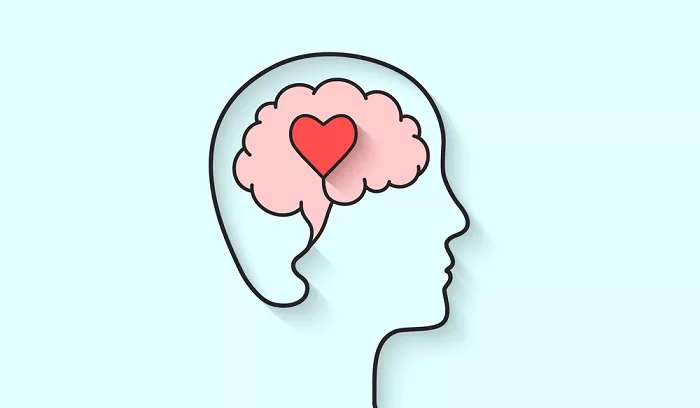Mental self-improvement is one of the most rewarding investments you can make in yourself. In today’s fast-paced world, where stress and anxiety are increasingly common, developing strong mental habits and emotional resilience has never been more important. This comprehensive guide draws from psychological research and therapeutic practices to provide you with a detailed roadmap for meaningful mental growth.
Psychological studies consistently show that intentional mental self-improvement leads to greater life satisfaction, improved relationships, and enhanced performance in all areas of life. Unlike physical fitness, which has visible markers of progress, mental growth occurs internally – but its effects ripple outward, influencing every decision, interaction, and experience.
Understanding the Foundations of Mental Improvement
Before diving into specific techniques, it’s crucial to understand what mental improvement truly entails. At its core, mental self-improvement involves developing greater self-awareness, emotional regulation, and cognitive flexibility. These skills form the foundation upon which all other improvements are built.
The Science Behind Mental Growth
Neuroplasticity – the brain’s ability to reorganize itself by forming new neural connections – means that change is always possible. Research in positive psychology demonstrates that consistent practice of mental exercises can literally rewire your brain, strengthening areas associated with emotional regulation and decision-making while weakening pathways linked to anxiety and negative thinking.
Developing Core Mental Skills
Mastering Self-Awareness
Self-awareness serves as the cornerstone of all mental improvement.
Psychologists identify two key types:
Internal self-awareness: Understanding your values, passions, and thought patterns
External self-awareness: Recognizing how others perceive you
Practical Exercises for Enhanced Self-Awareness
Daily reflection journaling: Spend 10-15 minutes each evening examining your emotional responses and behavior patterns
Mindfulness body scans: Practice tuning into physical sensations as indicators of emotional states
360-degree feedback: Seek honest input from colleagues, friends, and family about your blind spots
Cognitive Restructuring Techniques
Our thoughts directly influence our emotions and behaviors. Cognitive Behavioral Therapy (CBT) offers proven methods for identifying and modifying unhelpful thought patterns.
Step-by-Step Cognitive Restructuring
Thought recording: Document automatic negative thoughts as they occur
Evidence examination: Objectively assess the validity of these thoughts
Alternative generation: Develop more balanced, realistic perspectives
Behavioral experiments: Test new thought patterns in real-world situations
Building Emotional Resilience
Emotional resilience – the ability to adapt to stress and adversity – can be systematically developed through specific practices.
The Resilience Pyramid
Foundation: Physical health (sleep, nutrition, exercise)
Middle layer: Emotional regulation skills
Peak: Meaning and purpose
Evidence-Based Resilience Builders
Gratitude journaling: Writing down 3-5 things you’re grateful for daily
Adversity analysis: Examining past challenges to identify growth opportunities
Stress inoculation: Gradually exposing yourself to manageable stressors
Enhancing Social and Emotional Intelligence
Human connection plays a vital role in mental wellbeing. Improving your social intelligence involves several key components.
Components of Social Intelligence
- Active listening skills
- Empathy development
- Conflict resolution abilities
- Nonverbal communication awareness
Practical Social Skills Exercises
Mirroring practice: Subtly matching body language in conversations
Emotion labeling: Identifying and naming emotions in yourself and others
Perspective-taking: Regularly considering situations from others’ viewpoints
Creating Sustainable Mental Habits
Lasting mental improvement requires turning beneficial practices into automatic habits.
The Habit Formation Cycle
Cue: Identify triggers for desired behaviors
Routine: Establish consistent practice
Reward: Create positive reinforcement
Repetition: Strengthen through regular repetition
Effective Habit-Stacking Techniques
- Pair new mental exercises with existing routines (e.g., mindfulness while brushing teeth)
- Use environmental cues (sticky notes, phone reminders)
- Implement “if-then” planning (e.g., “If I feel stressed, then I’ll do deep breathing”)
Overcoming Common Mental Blocks
Progress isn’t always linear. Understanding common psychological barriers can help you navigate challenges.
Frequent Mental Growth Obstacles
- The perfectionism trap
- Negative self-talk cycles
- Cognitive distortions (e.g., catastrophizing)
- Emotional avoidance
Strategies for Overcoming Blocks
- Self-compassion exercises
- Cognitive defusion techniques
- Values clarification work
- Behavioral activation methods
Measuring Your Progress
Tracking improvements helps maintain motivation and identify what’s working.
Effective Progress Metrics
- Emotional baseline assessments
- Behavior frequency tracking
- Journal analysis for pattern recognition
- Feedback from trusted observers
Creating a Personal Growth Dashboard
- Weekly self-evaluation ratings
- Milestone celebrations
- Adjustment protocols for plateaus
Integrating Professional Support
While self-improvement is powerful, professional guidance can accelerate progress.
When to Seek Professional Help
- Persistent mood disturbances
- Significant life transitions
- Trauma processing
- When self-help efforts stall
Types of Professional Support
- Cognitive Behavioral Therapy
- Mindfulness-Based Stress Reduction
- Positive Psychology Coaching
- Group Therapy options
Conclusion
Mental self-improvement is a lifelong journey that yields compounding benefits. By systematically applying the strategies outlined in this guide – from foundational self-awareness practices to advanced cognitive restructuring techniques – you can fundamentally transform your mental and emotional wellbeing.
Remember that growth occurs in cycles of learning, practice, and integration. Some days will feel like breakthroughs while others may challenge your progress. This is completely normal. The key is consistent, compassionate effort.
As you continue your mental improvement journey, periodically revisit and reassess your approach. What worked initially may need adjustment as you grow. Stay curious about new psychological research and be willing to adapt your practices.
Most importantly, celebrate every step forward, no matter how small. Mental growth isn’t about perfection – it’s about progress. Each moment of increased awareness, each skillful response to challenge, and each intentional choice contributes to building the mentally strong, emotionally resilient person you’re becoming.
Your mind is your most powerful asset. By investing in its development, you’re not just improving yourself – you’re enhancing every aspect of your life and positively impacting everyone you encounter. The journey begins with a single step, and continues one intentional thought, one mindful action at a time.
Related topics:
- Distinguishing Between Unhappiness and Depression
- 20 Ways To Stay Mentally Healthy: Simple Tips For A Happier Mind
- How To Work On Yourself Mentally And Physically?


